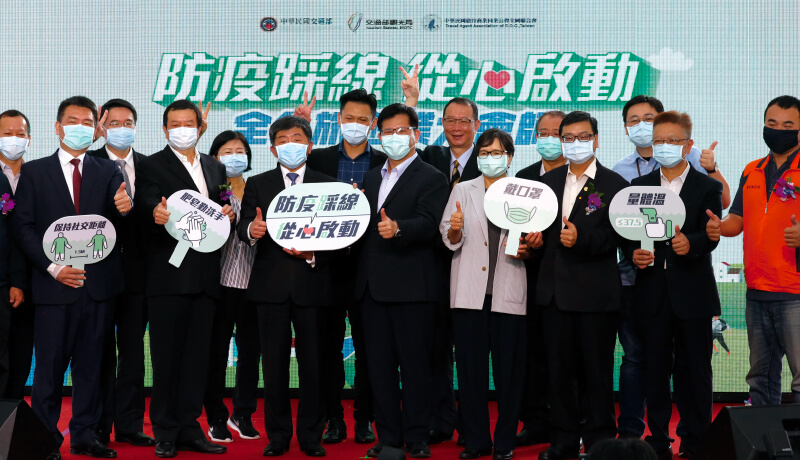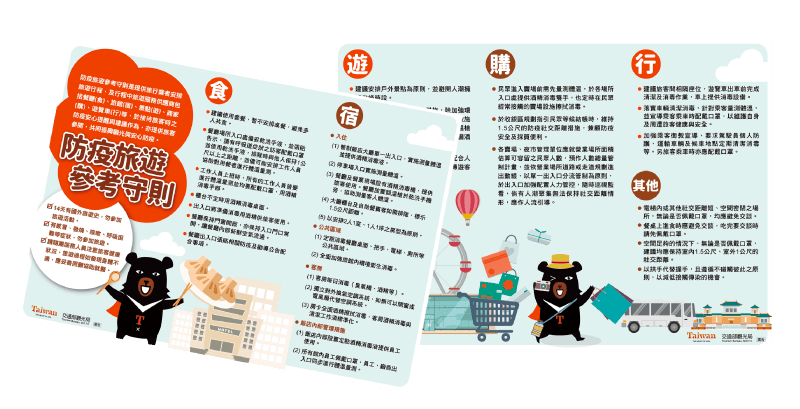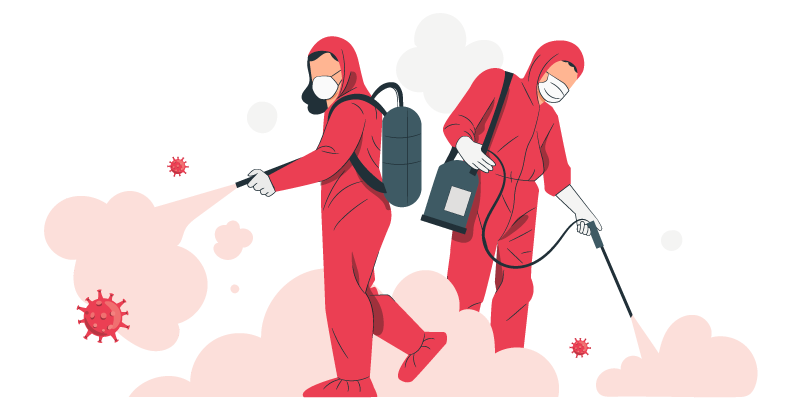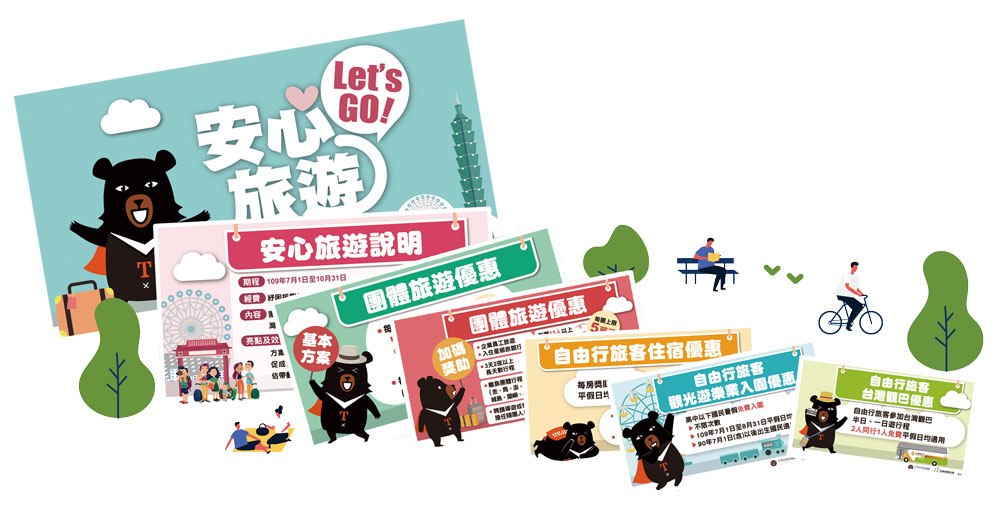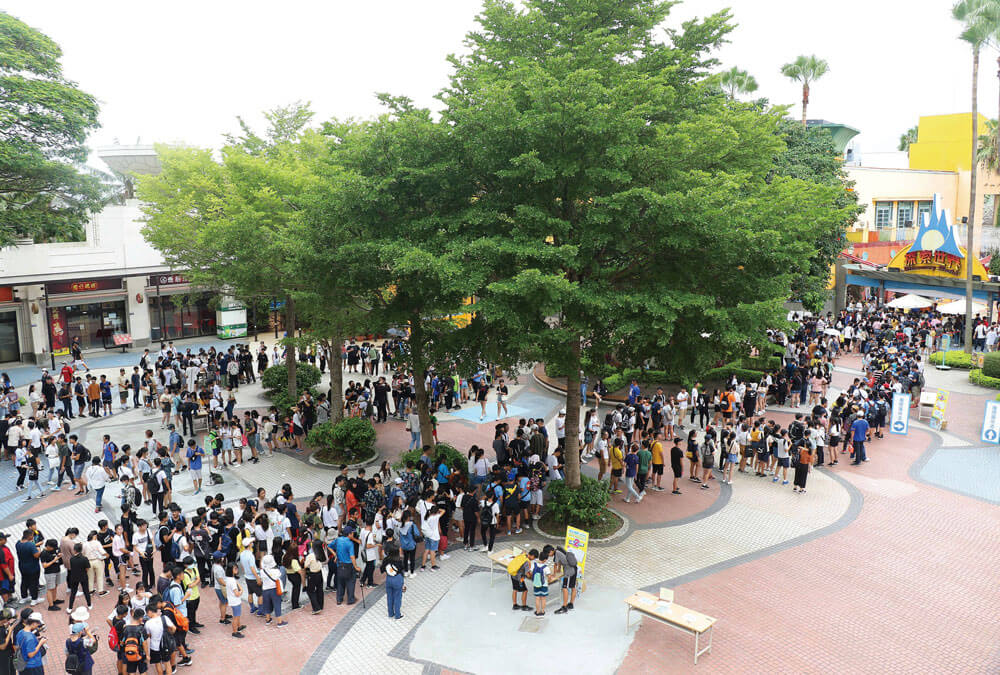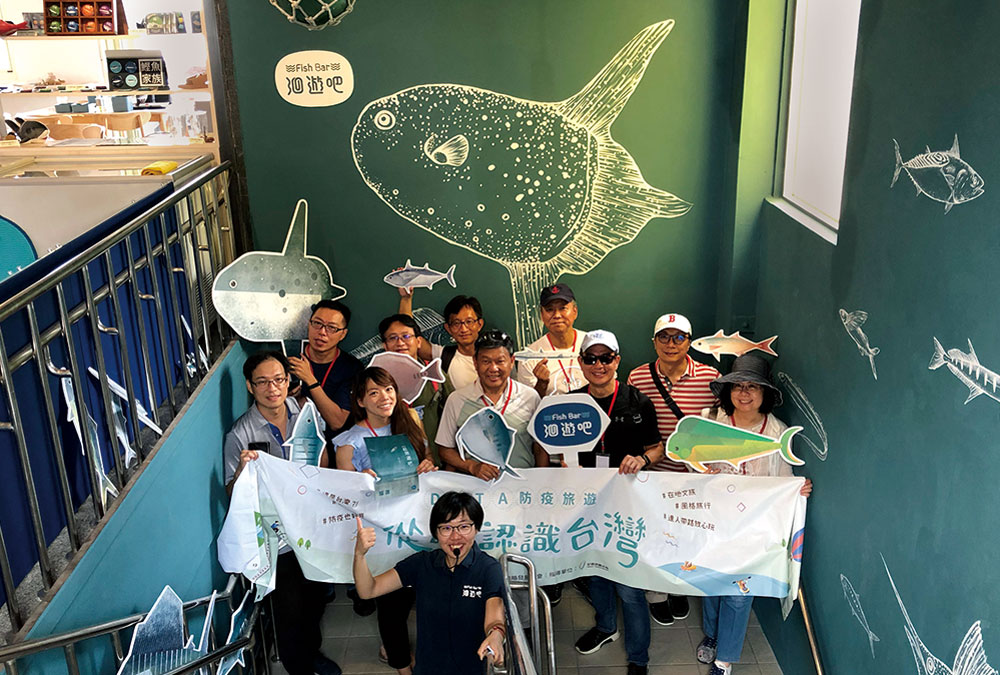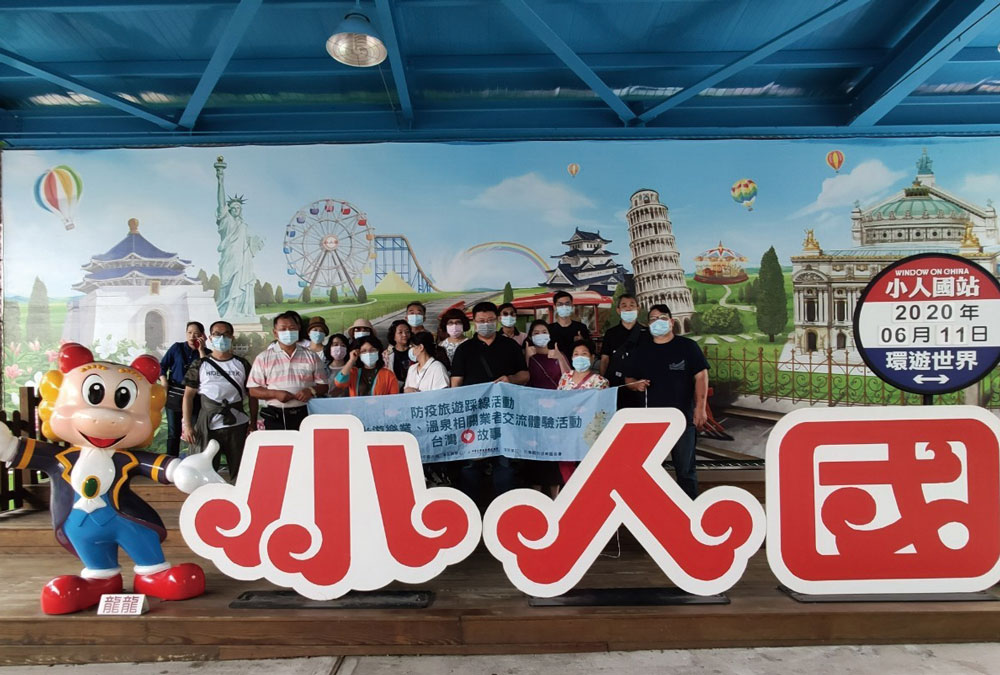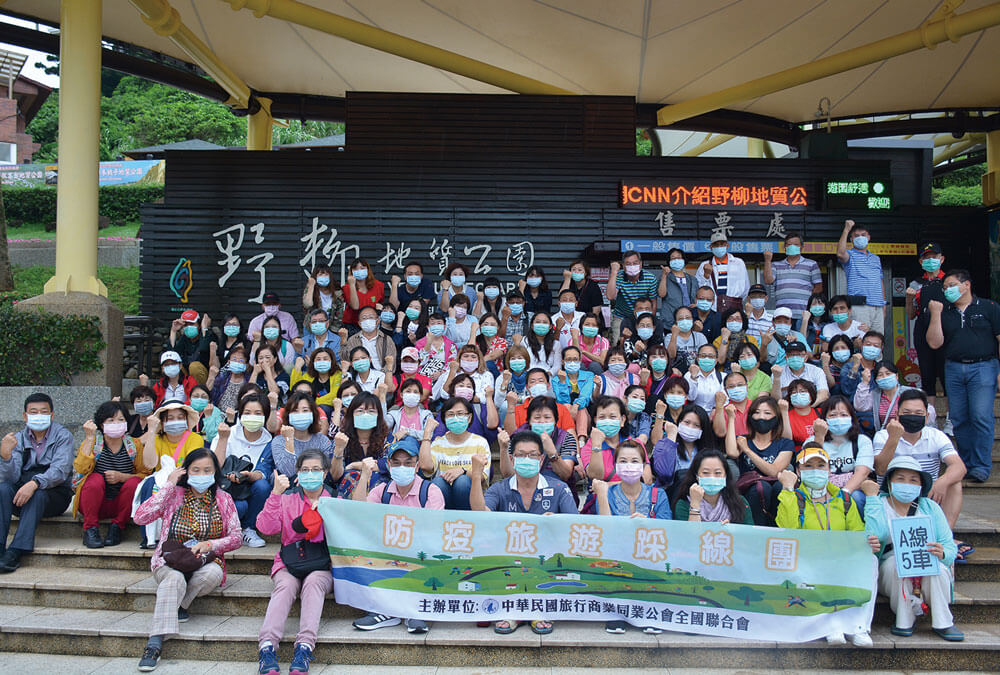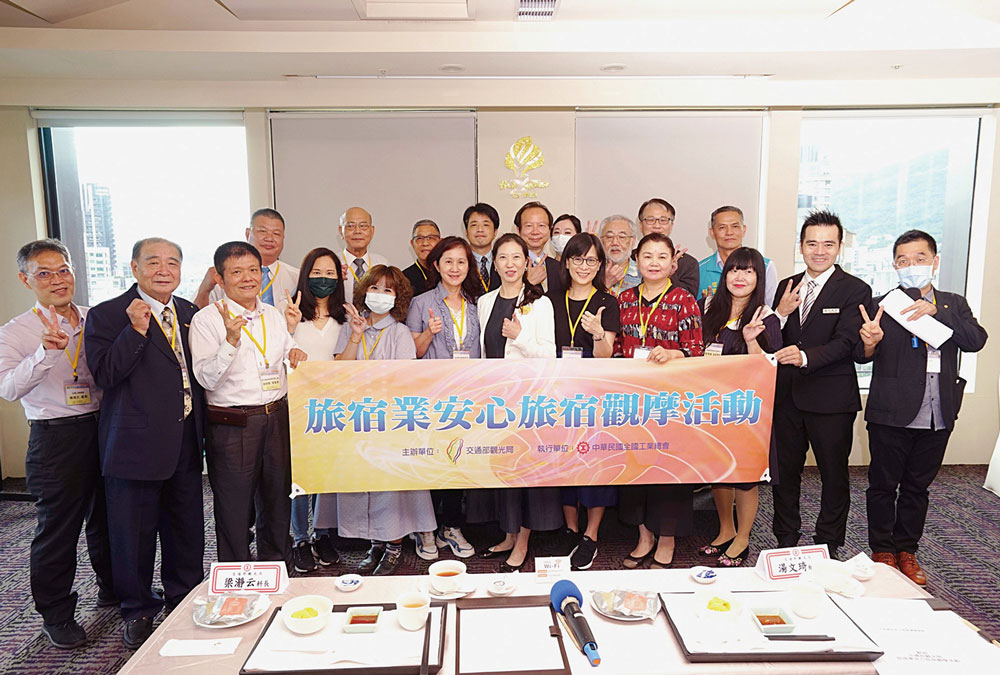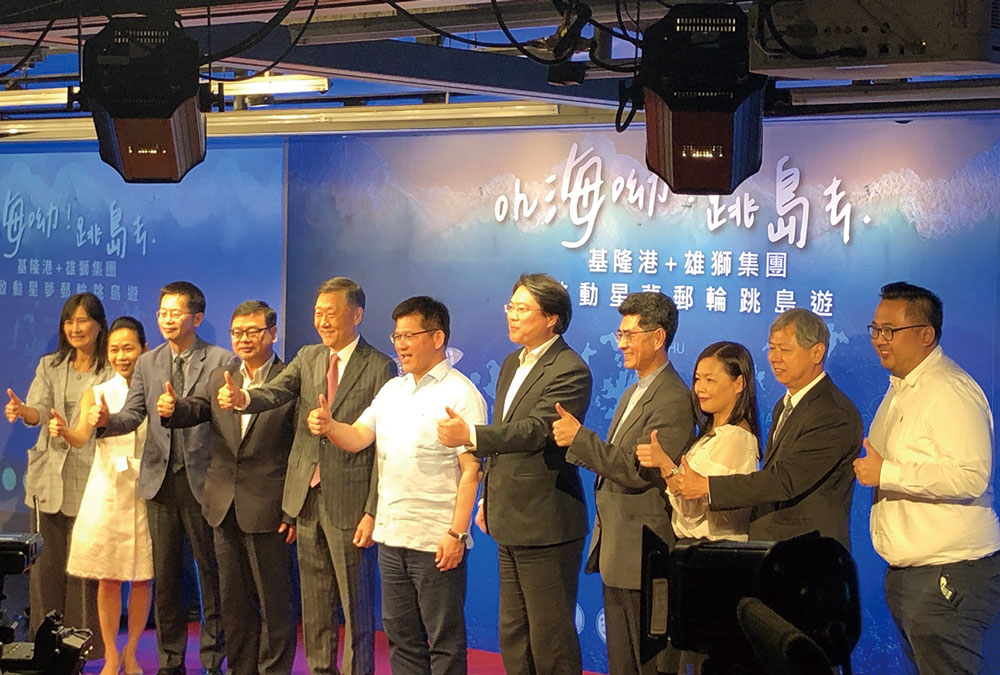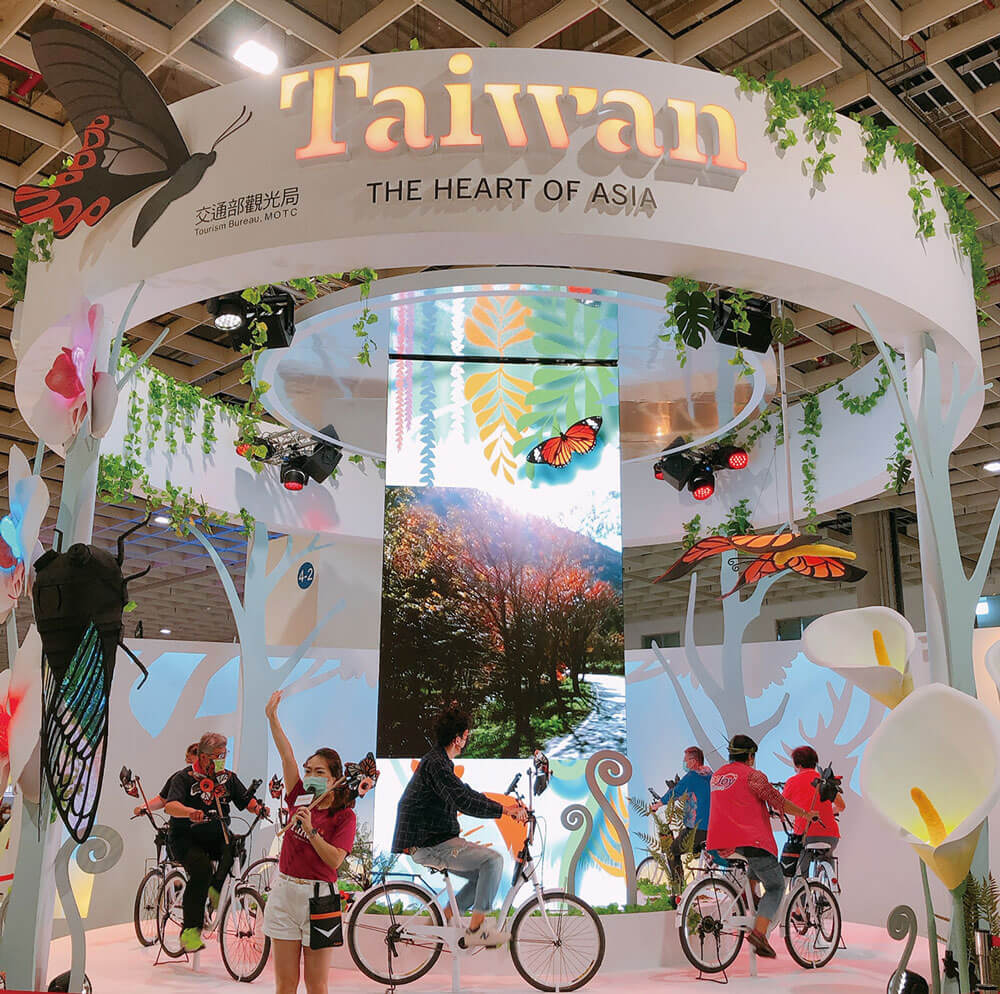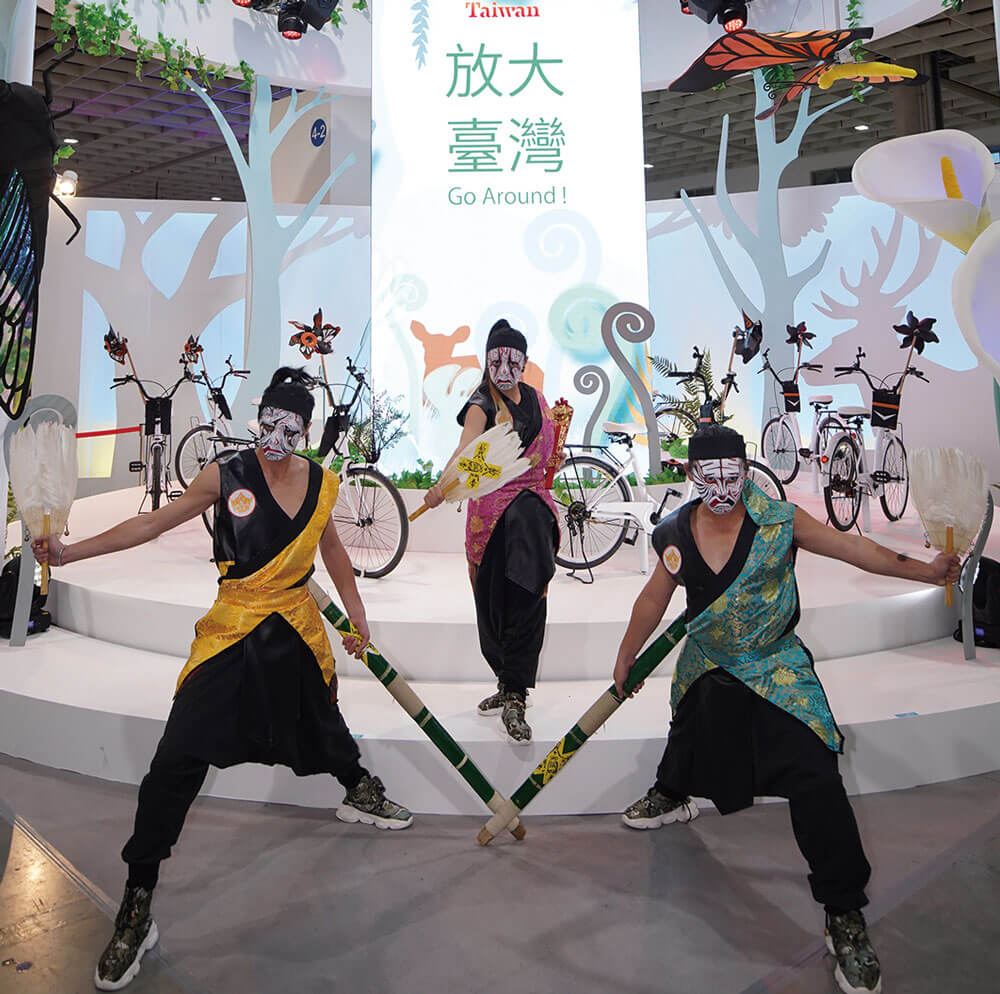COVID-19 had a major impact on the global market and economy. Countries around the world enacted border controls that brought international travel to a standstill. This had unprecedented repercussions for the tourism industry. In 2020, the number of visitors to Taiwan plunged by 88.39% to 1,377,000 and outbound travel from Taiwan fell 86.34% to 2,335,564. The United Nations World Tourism Organization (UNWTO) and International Air Transport Association (IATA) forecast that it would be at least two to three years before international travel returns to 2019 levels after the pandemic. During this time, the Tourism Bureau has helped the tourism in-dustry to transform, develop innovative products, invest in domestic tourism and focus more on domestic travel. We are helping the tourism industry find new and creative opportunities through which the people of Taiwan can experience and fall in love with parts of Taiwan that they might have never visited before. Taiwan's tourism industry will continue to face the challenge of trans-forming after the pandemic. It will need to upgrade the domestic travel market, improve service quality, enhance digital services, and take other initiatives to weather the crisis successfully and welcome international visitors back in the future.
Successful Early Deployment in Epidemic Prevention Work
Suspending group tours to prevent the spread of COVID-19
In conjunction with the Central Epidemic Command Center’s (CECC) epidemic prevention measures, the Tourism Bureau established a response team to closely track the Taiwan itineraries of tour groups from mainland China. On January 24, 2020, the Bureau announced the suspen-sion of tour groups from mainland China and asked travel agencies to suspend such itineraries from January 25. It also assisted arrangements for all tour groups from mainland China already in the country to depart from Taiwan by January 31. Due to COVID-19 developments, the Bureau asked travel agents to suspend outbound and inbound group tours from March 19, 2020, as part of comprehensive measures to protect public health and safety. The Bureau also provided subsi-dies to travel agents to compensate for the suspension of 25,300 inbound and outbound group tours and the early departure of 47 tour groups from mainland China due to border closures.
Establishing quarantine hotels for public safety
The Tourism Bureau formulated the Guidelines for Incentives by Municipal and County/City Governments to Promote Quarantine Accommodations on April 15 in order to accelerate the es-tablishment of quarantine hotels. These guidelines were needed due to a rapid increase in the number of people under home quarantine/isolation, as well as directives from the CECC to estab-lish new quarantine accommodations. By the end of 2020, a total of 282 quarantine hotels (16,466 rooms) had accommodated 111,280 stays and applied for NT$1.29 billion in funding from local governments.
Implementing epidemic prevention measures at scenic areas to ensure visitor safety
The Tourism Bureau implemented the Measures to Control Crowds at Public Areas of Tourism and Scenic Areas and High-occupancy Hotels in conjunction with the Measures to Control Crowds at Major Scenic Areas, Night Markets, and other Public Places announced by the CECC. The measures aimed to reduce large gatherings at tourist attractions during long weekends and limit admission at 25 domestic tourism areas and amusement parks to 50% of capacity to ensure visitor safety during the pandemic. Advance warnings were provided to divert visitor flows and strengthen COVID-19 prevention measures during long holidays at various theme parks and sce-nic areas. In addition, recreational facilities at theme parks were regularly cleaned and disinfected, with high-frequency sanitation of high-touch surfaces.
The Tourism Bureau also arranged a two-stage program to help hotel operators learn about spe-cific pandemic prevention measures through observation activities. Thirty hotel industry associa-tions participated in phase one; and 350 members of 18 hotel associations participated in the sec-ond stage. The Bureau also produced a guidebook on epidemic prevention measures in the hot spring industry.
The Three Principles of Industry Financial Support
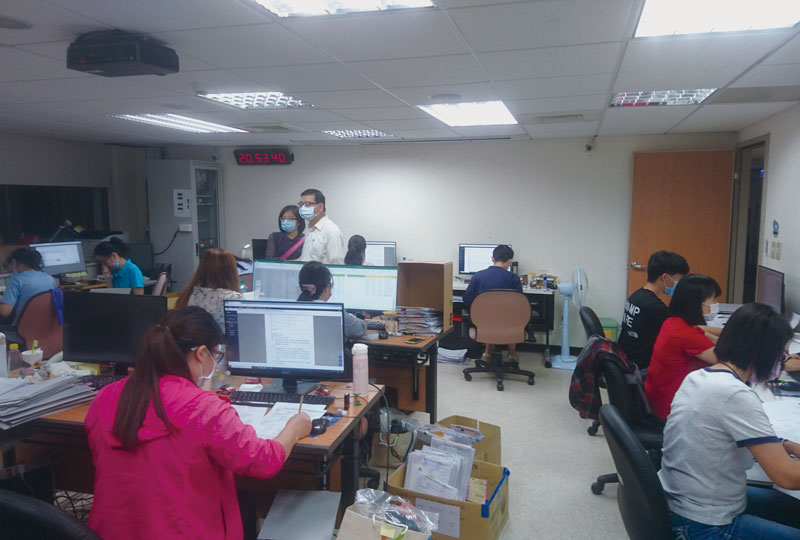 The Tourism Bureau fully mobilized to accelerate its financial support review.
The Tourism Bureau fully mobilized to accelerate its financial support review.
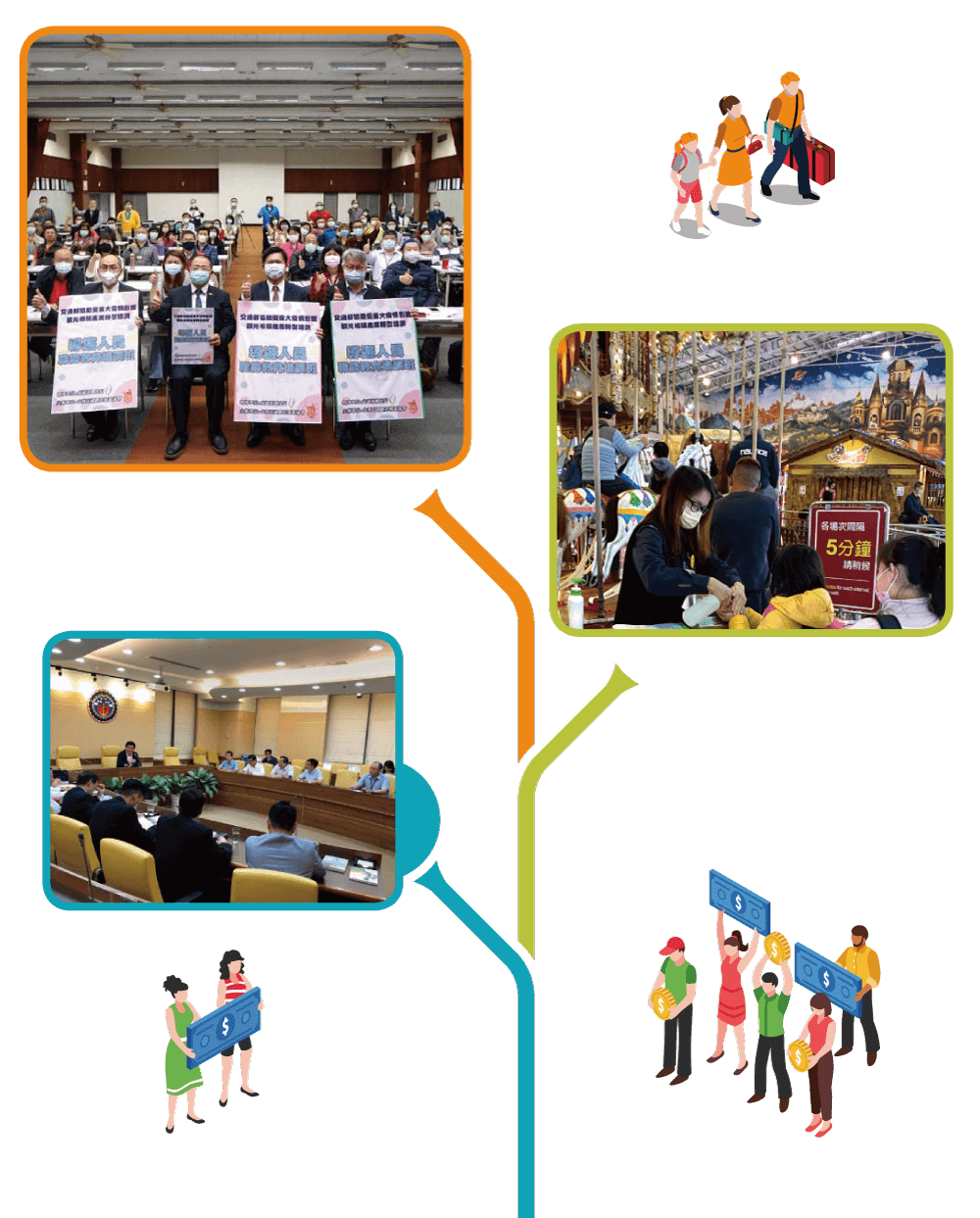 Upper left-The Tourist Guides Association, ROC offered transitional training for tour guides at the World Trade Center Taichung. / Lower left-Relief forum / Right-Epidemic-prevention measures at amusement parks (disinfection with alcohol)
Upper left-The Tourist Guides Association, ROC offered transitional training for tour guides at the World Trade Center Taichung. / Lower left-Relief forum / Right-Epidemic-prevention measures at amusement parks (disinfection with alcohol)
The Tourism Bureau promoted a relief plan based on the three principles of "broader," "faster," and "easier" in line with guidance from the Executive Yuan to help the tourism industry recover from the impact of COVID-19.
A symposium on travel industry relief was held to sound out industry insiders, understand the current status and impact of COVID-19 on the industry, and maximize efforts to provide industry relief. The Tourism Bureau launched the Travel Industry Operation and Salary Subsidy Program and Livelihood Subsidy Program for Tour Leaders and Accompanying Personnel. The programs provided operating subsidies to 3,022 companies and salary subsidies to 2,097 companies to maintain basic industry operations and sustainable industry development. The Bureau also pro-moted a Livelihood Subsidy Program for Tour Guides, Tour Leaders, and Accompanying Per-sonnel to reduce cost-of-living pressure on 19,079 tour guides, leaders, and accompanying per-sonnel affected by the pandemic.
To help the hotel industry weather the pandemic, the Tourism Bureau promoted a Subsidy for the Necessary Operating Expenses of Tourism Hotels and General Hotels. Subsidies of more than NT$1.46 billion were provided to 3,050 hotel operators and over NT$406.57 million in subsides was provided to 8,271 homestay operators to maintain staff salaries and prevent layoffs and un-employment. The Subsidy Program for the Tourist Hotel and General Hotel Industry Employee Salaries provided subsidies totaling approximately NT$2.65 billion to 2,366 companies in version 2.0 of the program and NT$856.78 million to 382 companies in version 3.0.
The Tourism Bureau promoted a COVID-19-related support and revitalization plan for the amusement park industry. Subsidies under the program included NT$52.87 million for 40 train-ing programs benefiting 5,006 amusement park employees; NT$48 million in amusement park operating expense support to 24 amusement parks; NT$35.2 million for amusement park em-ployee salary support; and NT$54.8 million to 23 amusement park operators for group order cancellations.
Training programs were arranged for tourism employees during the pandemic to assist in skill development. A total of 926 training sessions were provided to 120,218 people. The program also provided guidance to the industry in transforming and developing domestic tourism opera-tions and in creating new and innovative travel products. For example, Lion Travel spurred a new island boom in domestic island-hopping tourism with the launch of its "Island Hopping Tour." This was the first new cruise package to be released since the start of the pandemic.
To lighten the operational burden on the tourism industry, the Tourism Bureau revised guidelines to allow travel and amusement park industries and homestay operators with business or tax regis-trations to apply for financial support, such as low-interest loans, assistance in paying interest ex-penses, and a credit guarantee ratio of more than 90% for new loans. As of the end of December 2020, tourism businesses had submitted 1,137 applications for about NT$11.56 million in interest subsidies on approximately NT$8.75 billion in loans.
Invigorating domestic travel through revitalization measures
As the epidemic abated in Taiwan, the Tourism Bureau promoted economic development measures in coordination with a CECC campaign to encourage the public to change habits to prevent the spread of COVID-19. The Bureau promoted a three-stage tourism plan involving "Anti-Epidemic Travel," "Safe Travels," and "Post-Epidemic Tourism Readiness." The plan aimed to revitalize Taiwan's tourism market in stages, beginning with domestic travel.
Anti-Epidemic Travel: Building Public Confidence to Travel
The Tourism Bureau launched the "Anti-Epidemic Travel" (Phase 1) program on May 27, 2020. The program kicked off with field inspections of anti-epidemic tour routes, industry peer feed-back and exchanges, and input from local staff to help package and design higher quality travel products. The program also aimed to establish the most complete codes for anti-epidemic travel and create tourism options that would allow consumers to travel with confidence. The Bureau helped related associations promote high-quality, in-depth tours combining local culture and characteristics, as well as Taiwan specialty, local cultural experience, and adventure tours. It also assisted travel agencies in closely linking tour products with "Taiwan" and innovatively marketing local specialty products to create a foundation for in-depth and safe domestic travel.
Familiarization (FAM) tours on anti-epidemic travel were arranged for the tourism, travel, and hot spring industries. Under the theme of "Stories of Taiwan," a total of 47 tours were arranged by 895 participating businesses to implement anti-epidemic tourism in a broad manner. Major do-mestic travel agencies followed up with the launch of 10 anti-epidemic tours.
The Tourism Bureau organized an industry exchange on high-quality Taiwan Tour Bus tours. Ten high-quality benchmark itineraries were selected for anti-epidemic tours. Taiwan Tour Bus operators joined industry peers for exchanges and mutual learning. FAM tours for related busi-nesses and the media were arranged to publicize the safety and quality of Taiwan Tour Bus tours, as well as three major safe travel initiatives. These included collecting contact information, capaci-ty quotas, safety systems and disease-prevention measures. A total of 14 groups participated in the FAM tours and exchanges. These events facilitated cooperation and integration of Taiwan Tour Bus resources among related industry players to revitalize tourism development.
Spurring Industry Transformation and Accelerating Recovery of the Domestic Travel market through "Safe Travels"
The Tourism Bureau carried out the "Safe Travels" (Phase 2) program from July 1 to October 31, 2020. In coordination with the CECC's progressive lifting of COVID-19 lockdowns and the issu-ance of the Triple Stimulus Vouchers by the Executive Yuan, this phase involved various stimulus measures, including discounts for group travel, hotel stays for independent travelers, amusement park admissions, and Taiwan Tour Bus tickets for independent travelers. We also provided subsi-dies to local governments to encourage the offering of unique local events. The program spurred 18.46 million trips by locals and generated NT$65.4 billion in tourism-related spending. It boost-ed demand for food, lodging, touring, shopping, and other elements of domestic tourism. It also contributed to a 4.26% rise in the economic growth rate in the third quarter of 2020, and a 3.12% rise in annual economic growth rate.
The Tourism Bureau provided personnel training and FAM tours for industry leaders to help out-bound travel agencies transform operations to domestic tourism. The Safe Travels initiative sup-ported recovery of the domestic travel market and encouraged travel agencies to develop in-depth and innovative tours. For example, Lion Travel and the Keelung City Government partnered to launch the first four-day "Explorer Dream" domestic island-hopping cruise, providing the public with a safe and new domestic tourism experience. The introduction of high-quality, in-depth, and branded domestic tourism products further lifted the quality of domestic tourism and, in conjunc-tion with anti-epidemic measures, inspired the release of other tourism products of equivalent val-ue. The Safe Travels program has steadily shown the public that domestic travel can keep pace with international tourism, and it has earned the confidence of consumers.
The Safe Domestic Travel Subsidy Program contributed to higher hotel occupancy rates. It helped internationally-focused travel agencies and hotels to shift operations to domestic tourism and ad-just their business strategies. For example, the Grand Formosa Regent Taipei responded to the ep-idemic by developing city holiday operations, introducing cruise ship-style vacation experiences, and highlighting health themes to attract high-end hotel and restaurant customers and increase revenue. LDC Hotels and Resorts tapped into the employee benefits and employee travel market. It also used e-vouchers to reduce physical contact and strengthen COVID-19 prevention mecha-nisms, while offering company employees a greater choice of benefits. Businesses also attracted local travel and hotel business with promotions and improved dining services in a shift that drove overall performance gains.
Off-campus teaching and graduation travel was canceled in the first half of 2020 due to COVID-19. The Tourism Bureau therefore promoted an amusement park admission discount activity un-der the Safe Travels Program. Price incentives were offered to attract family visits, increase local consumption, spur development of local industries, and achieve the policy goals of restoring and revitalizing the tourism market. This well-received activity attracted 1.84 million under-19 local visitors and 3.93 million visitors overall to amusement parks, up 85.56% from the same period in 2019. Amusement park revenues bucked trends to rise to a record high of approximately NT$3.99 billion, up 54% from the same period in 2019.
Post-Epidemic Tourism Readiness
On October 23 and December 28, 2020, the Tourism Bureau invited experts and scholars from business, government, and academia to participate in a discussion on the post-pandemic future of Taiwan tourism. On January 18-19, 2020, the Bureau held a Forum on Tourism Transformation after the Pandemic. The forum discussed inter-agency communication, coordination, and collabo-ration platforms for tourism and the development of "three tourism" tasks: establishment of a tourism-based country, tourism mainstreaming, and tourism circles.
Maintaining Domestic Tourism and Soundly Developing Internation-ally
To maintain the Safe Travels boom, the Tourism Bureau carried out the "Winter Weekday Group Travel Incentive Program" from December 2020 to January 2021. The program helped travel agencies to transform their business models during the epidemic. It incentivized them to develop group tour packages during low-demand periods, including through cooperation with local gov-ernments to promote winter group travel. It also encouraged counties and cities to subsidize group travel products highlighting local characteristics. This joint subsidy approach aimed to attract more tour group visits and coordinate central and local government efforts to maintain momen-tum in the domestic tourism market.
In addition, the Tourism Bureau and its overseas offices enhanced online promotions during COVID-19 to maintain the visibility of Taiwan tourism. The Bureau arranged online and offline activities and travel exhibitions and partnered with internet celebrities and travel platforms to pub-licize Taiwan tourism. It also arranged online exchange, education, and training events for travel agents to create more opportunities for industry and consumer exposure. In 2020, the Bureau participated in more than 500 marketing and promotion activities and 20 OTA cooperation cases.
The Tourism Bureau held video conferences with overseas travel agencies and government agen-cies in Japan, Korea and Vietnam to exchange views on industry cooperation and ways to restore markets on the two sides after the pandemic. The Bureau formulated an international promotion plan to capitalize on global market trends and gradually restore inbound tourism, with an initial emphasis on building the confidence of international travelers to visit Taiwan and then increasing the number of such visits. The plan aimed to sustain the visibility of Taiwan tourism in neighbor-ing Asia-Pacific and Southeast Asian countries, as well as in long-haul countries in Europe and the Americas. The Bureau also continued to produce themed promotional videos to promote Taiwan tourism through various channels to increase its overall media exposure.
Following the launch of the Anti-Epidemic Travel and the Safe Travels programs, the Tourism Bureau drafted a tourism bubble plan to quickly restore inbound tourism and provide a safe trav-el environment to attract international tourists to Taiwan. The plan prioritized safety and was co-ordinated with the CECC's border reopening timeline, as well as with the promotion of interna-tional cooperation by the Ministry of Foreign Affairs. In view of the trend towards short-distance travel during COVID-19, the program prioritized three markets: Northeast Asia, Southeast Asia, and Hong Kong/Macao. These markets are all within a four-hour flight to Taiwan, and over the years have been the source of more than a million visitors to Taiwan.
